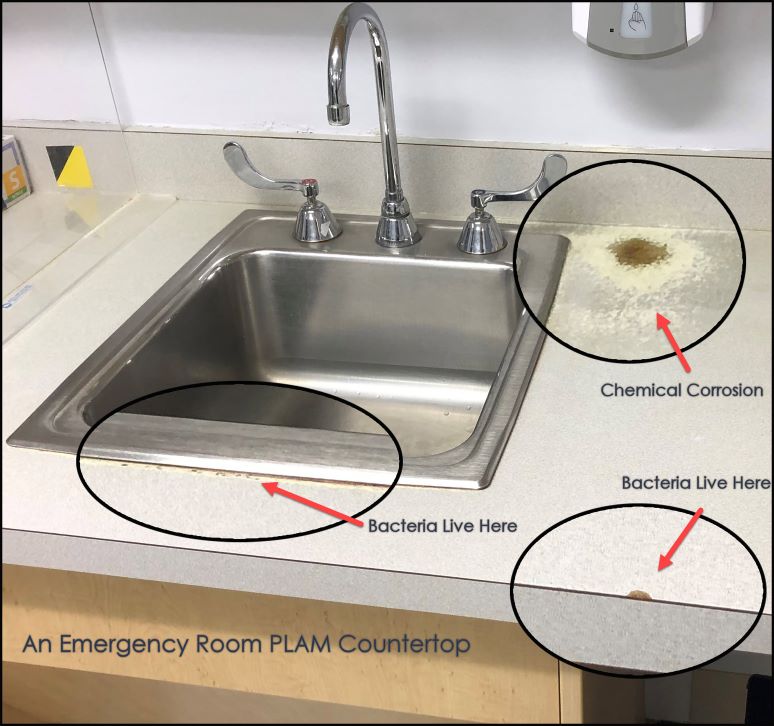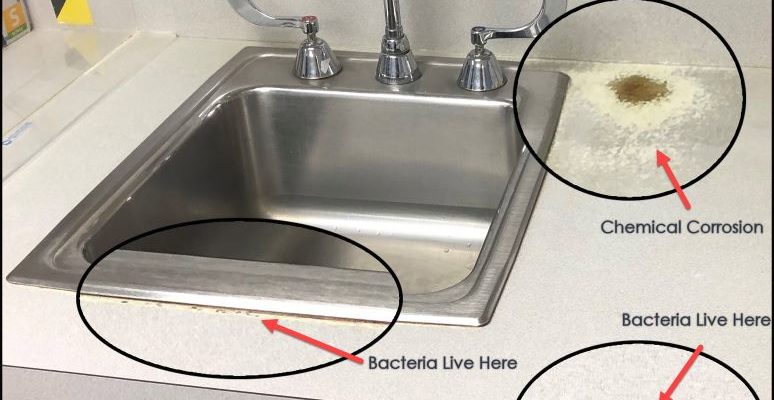
Healthcare Acquired Infections are also known as nosocomial (nōzōˈkōmēəl) infections. The awareness of Healthcare Acquired Infections (HAI) is at an all-time high and prevention or reduction of HAI is crucial to caring for the patient. HAI costs are incurred by the patient and the healthcare provider. Patient costs of HAI include increased length of stay and even death. Healthcare provider costs of HAI are withheld provider compensation and higher insurance rates.
How can healthcare providers reduce the risk of HAI? One of the primary methods of reducing HAI, according the Centers for Disease Control and Prevention, is environmental cleaning. How can you clean a laminated top with a chip exposing the particle board core? The answer is that you can’t. In most healthcare environments, once a PLAM countertop has been chipped, it will have to be replaced to ensure that the healthcare provider is reducing the risk of HAI and will pass a healthcare inspection.
What if your method of infection control cleaning damages your furnishings? Ethanol, bleach and strong detergents will deteriorate Plastic Laminate (PLAM) exposing the particle wood substrate beneath. This provides a medium for bacteria to grow and another check mark for the health inspector. When PVC edge banding peals, the exposed wood substrate is a prime location for bacterial growth as well.
Solid Surfaces are resistant to chemicals, restistant to bacteria and will not delaminate. This makes solid surfaces desirable for healthcare environments and HAI can be reduced by replacing PLAM with solid surfaces. Every health system should make the replacement of laminate surfaces with solid surfaces part of their Infection Control Plan.
At ASST, we have been fabricating healthcare solid surfaces for 22 years. We have a solid surface fabrication facility in McSherrystown, PA and a quartz fabrication facility in Corry, PA. Whatever your needs, ASST can build it to the exact specifications, in a safe manner and to the finest quality standards you expect. Contact us now online or call us at 717-630-1251.


